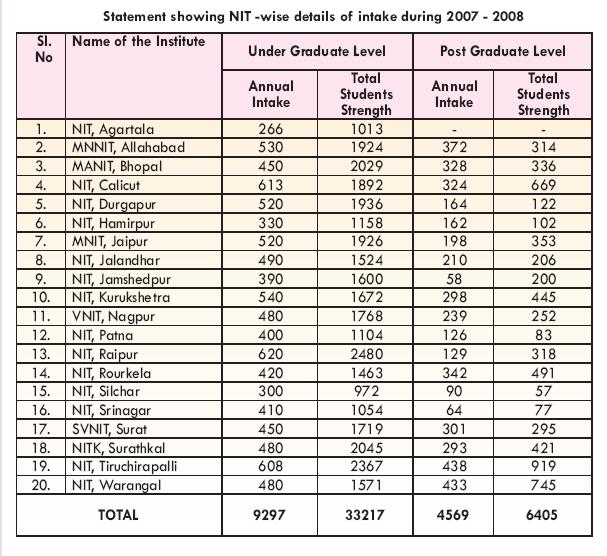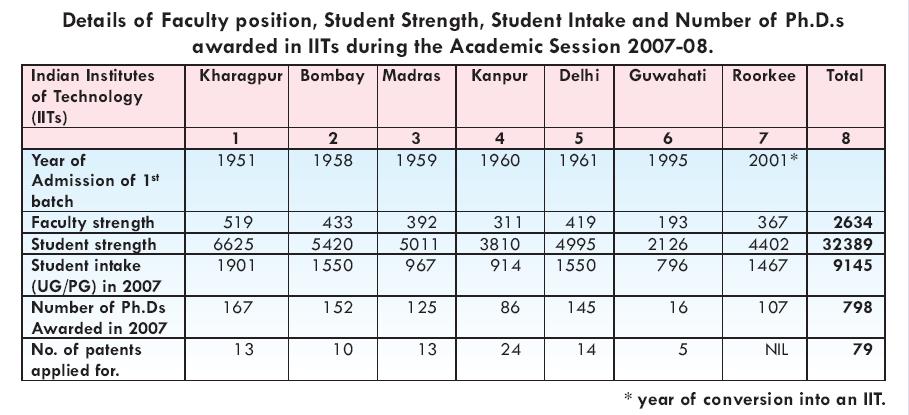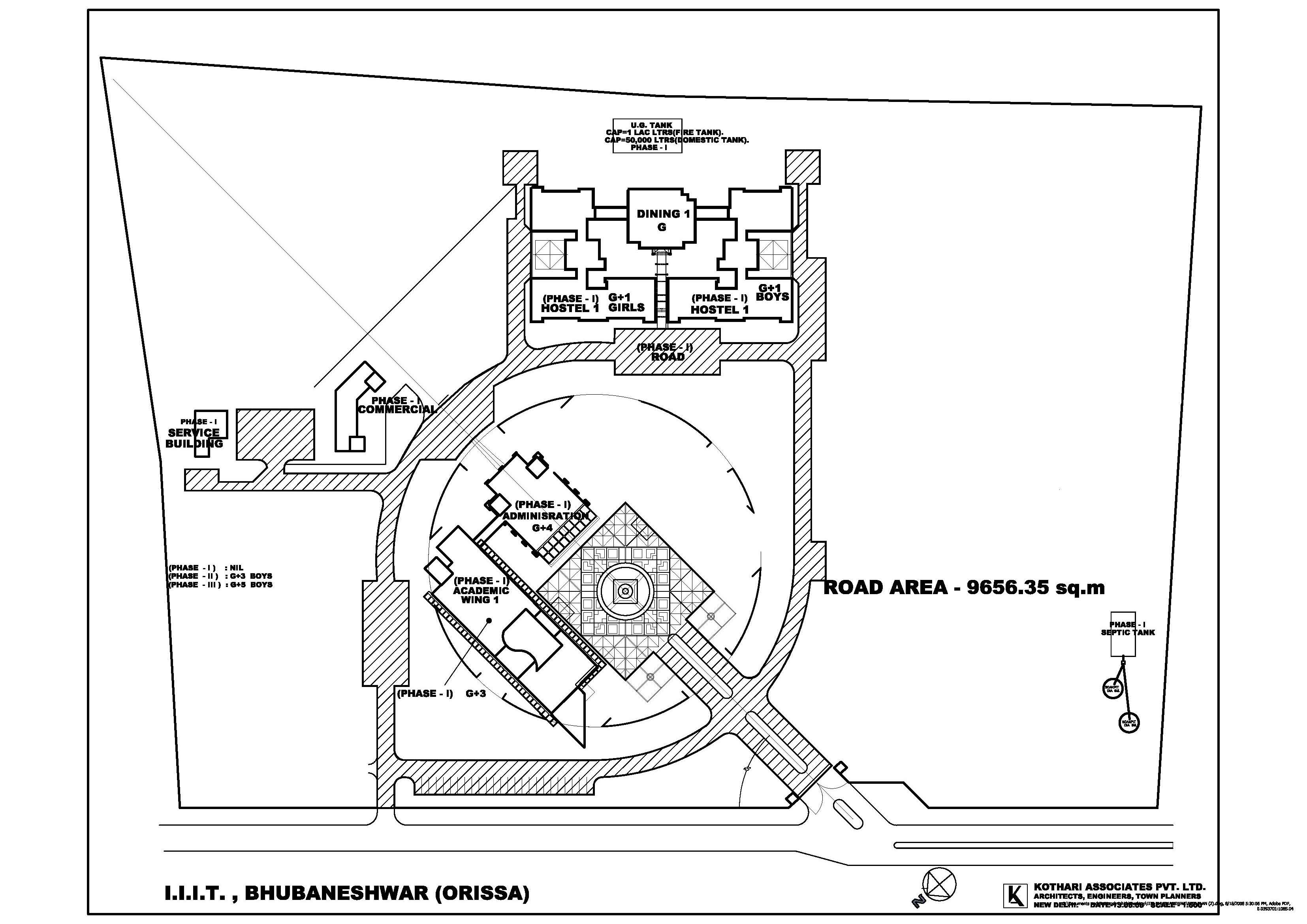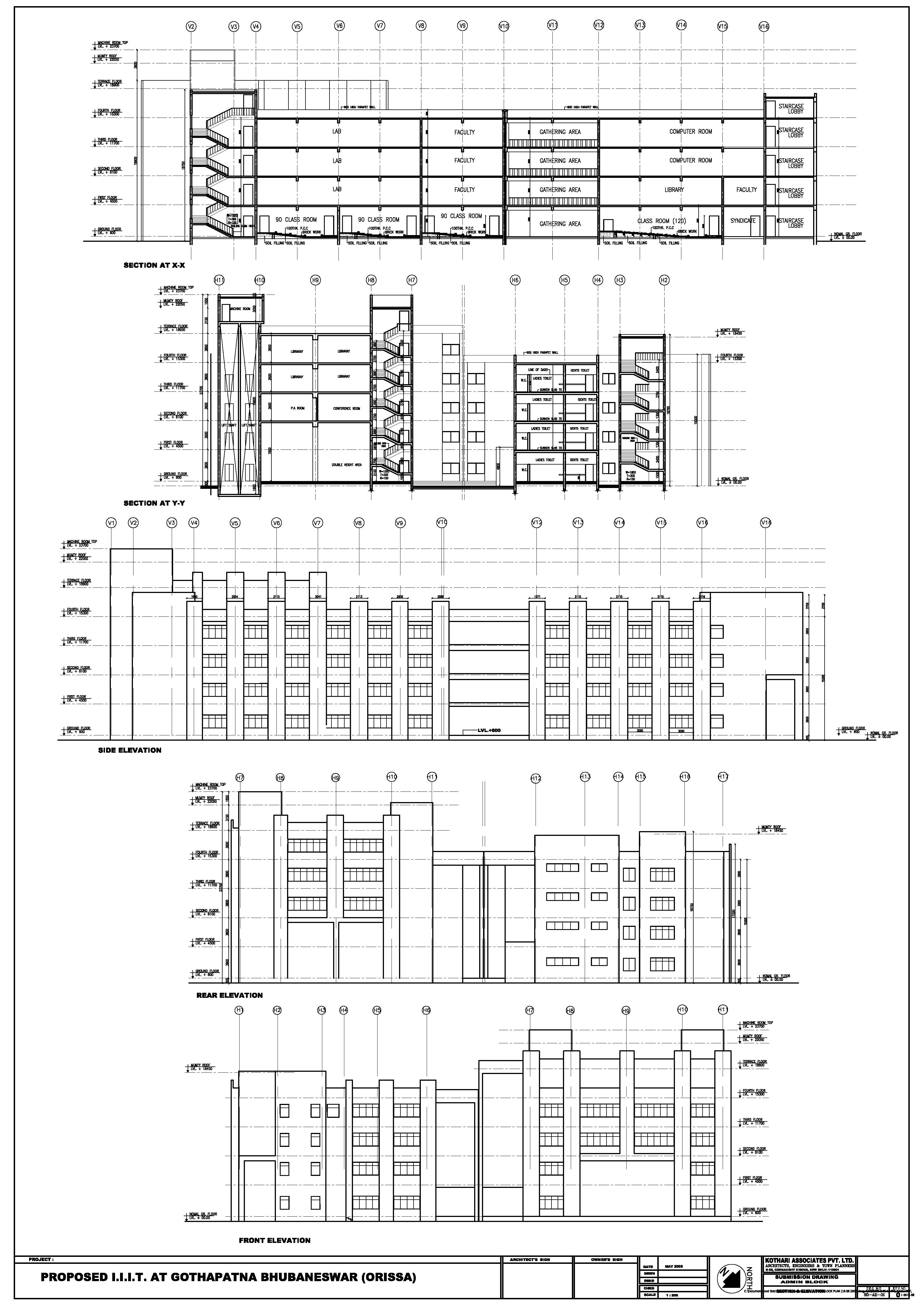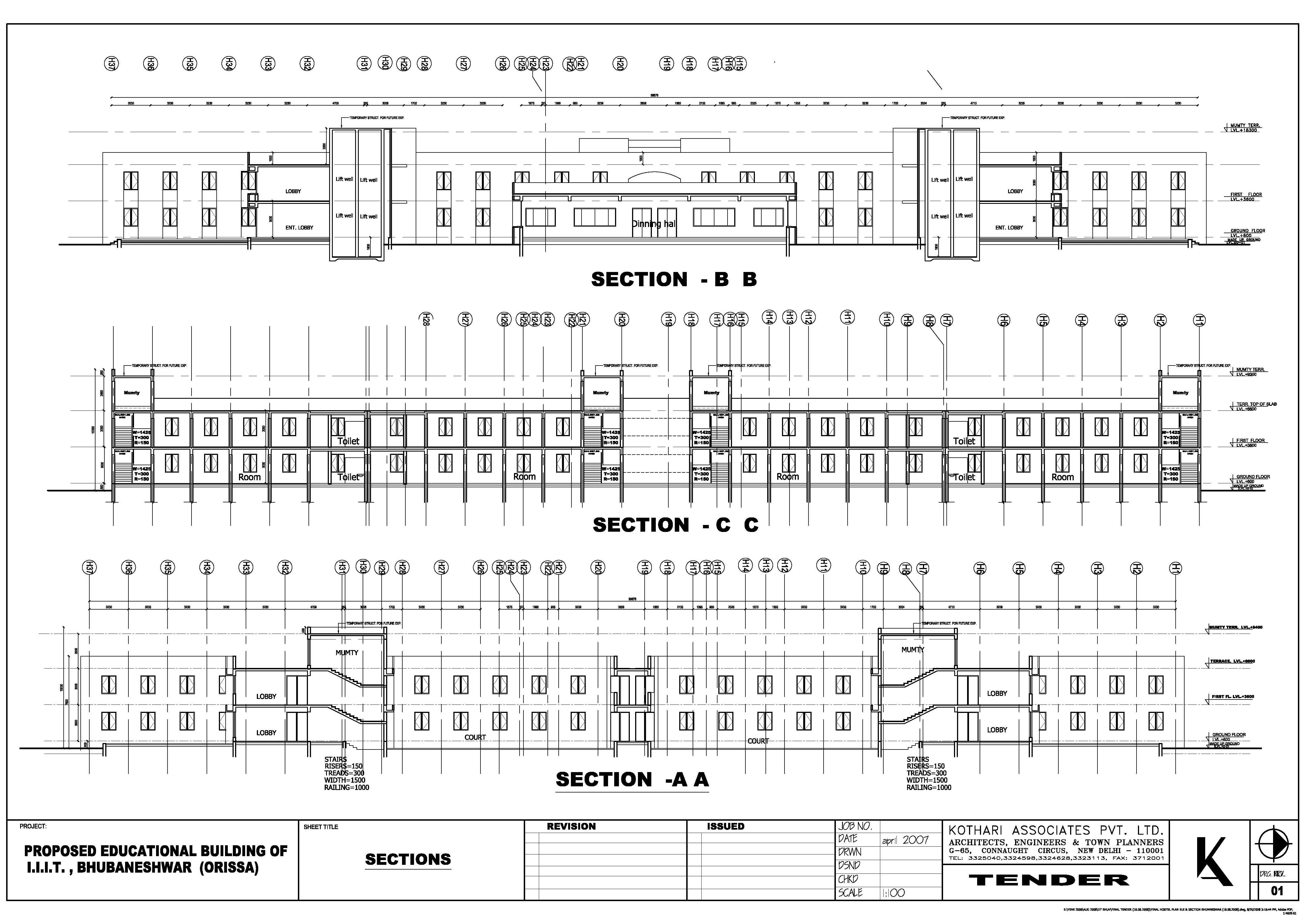Following is from http://pib.nic.in/release/release.asp?relid=43395.
The Pay Review Committee after detailed deliberations has made the following recommendations about various aspects of revision of pay and allowances, service and working conditions of teachers, Librarians, Directors of Physical Education and other Academic Staff in colleges and universities recognized by the University Grants Commission.
I. New Nomenclature for various teaching posts
Assistant Professor for Lecturer
Assistant Professor (Senior Scale) for Lecturer (Senior Scale)
Assistant Professor (Selection Grade) for Lecturer (Selection Grade)
Associate Professor for Associate Professor
Senior Associate Professor New Position
Professor for Professor
Senior Professor New Position
Professor of Eminence New Position
II. New Scales of Pay and Allowances
EXISTING AND PROPOSED SCALES OF PAY FOR
UNIVERSITY AND COLLEGE TEACHERS
|
A. POSTS SPECIFIC TO UNIVERSITIES
|
|
|
CATEGORY
|
EXISTING PAY SCALE
|
NEW PAY BAND
|
GRADE PAY
|
|
1
|
Assistant Professor
|
8000- 275-13500
|
15600 – 39100
|
6600
|
|
2
|
Assistant Professor
(Senior Scale)
|
10000 – 325 – 15200
|
15600 – 39100
|
7200
|
|
3
|
Assistant Professor
(Selection Grade)/
Associate Professor
|
12000 -420 – 18300
|
15600 – 39100
|
8000
|
|
4
|
Professor
|
16400-450-20900-500-22400
|
37400 – 67000
|
11000
|
|
5
|
Senior Professor
|
New Post Proposed
|
37400 – 67000
|
12000
|
|
6
|
Pro-VC
|
18400—500-22400.
|
37400-67000
Plus 4 Adv increments
|
12000
|
|
7
|
Professor of Eminence
|
New Post Proposed
|
80000 (fixed)
|
Nil
|
|
8
|
Vice – Chancellor
|
25000 (Fixed)
|
80000 (Fixed)
|
Nil
|
|
9
|
Librarian/Director of PE
|
16400-450-20900-500-22400
|
37400-67000
|
11000
|
|
10
|
Deputy Librarian/Deputy Director of PE
|
12000-420-18300
|
15600-39100
|
8000
|
|
11
|
Asstt. Librarian (Sr. Scale)/ Asstt Director of PE (Sr. Scale)
|
10000-15200
|
15600-39100
|
7200
|
|
12
|
Asstt Librarian/
Asstt Director PE/Sports Officer/Physical Instructor
|
8000-275-13500
|
15600-39100
|
6600
|
|
B. POSTS SPECIFIC TO COLLEGES
|
|
1
|
Assistant Professor
|
8000- 275-13500
|
15600 – 39100
|
6600
|
|
2
|
Assistant Professor
(Senior Scale)
|
10000 – 325 – 15200
|
15600 – 39100
|
7200
|
|
3
|
Assistant Professor
(Selection Grade)/
Associate Professor
|
12000 -420 – 18300
|
15600 – 39100
|
8000
|
|
4
|
Senior Associate Professor
|
New Post Proposed
|
37400 – 67000
|
8700
|
|
5
|
Professor in PG Colleges
|
New Post Proposed
|
37400 – 67000
|
11000
|
|
6
|
a. Principal of UG College
b. Principal of PG College
|
12000-18300
16400-450-20900-500-22400
|
37400-67000
Plus 2 Adv increments.
37400-67000
Plus 2 Adv increments
|
8700
11000
|
|
7
|
College Librarian /
Director of PE/
Sports Officer/ PI
|
8000-13500
|
15600-39100
|
6600
|
|
8
|
College Librarian/
Director PE (Senior Scale)
|
10000-15200
|
15600-39100
|
7200
|
|
9
|
College Librarian(S.G)/ Director of Physical Education (SG)
|
12000-18300
|
15600-39100
|
8000
|
|
10
|
*Senior College Librarian (Selection Grade)Senior College DPE (Selection Grade)
|
New Post Proposed
|
37400-67000
|
8700
|
|
* The eligibility condition for promotion for this position may better be decided by the UGC in consultation with the special committee heading by a Senior Professor of Library / senior professor of Physical education
|
Annual Increment
3% of the Basic Salary ( Basic Pay + Grade Pay) with compounding effect
4% of the Basic Salary(Basic Pay + Grade Pay)with compounding effect for 2 years for a select few 25% in the Pay Band Rs. 15600-39100 on the basis of better teaching and research performance. Fresh appraisals are be made after two years.
Stagnation Removal
An incumbent after reaching the top of the scale in the pay band shall move to the next pay band without any change in the grade pay.
Increments for Higher Qualifications/ on Promotion.
Five advance increments instead of present four to a Ph.d degree holder at the time of recruitment as Assistant Professor.
Three advance increments instead of present two to an M.Phil degree holder at the time of recruitment as Assistant Professor.
Three advance increments to an incumbent holding M.Tech, M.D., M.S. L.L.M. degree at the time of recruitment as Assistant Professor.
Two advance increments to an incumbent who joins as Assistant Professor with basic M.A./MSc./M.Com etc. with NET/SET examination qualifications.
Two advance increments to an incumbent who joins as /Associate Professor in open selection.
Two advance increments to an incumbent on being promoted as /Associate Professor under CAS.
Three advance increments instead of present two to an in-service teacher on completing Ph.D. degree.
Two advance increments instead of present one to an in-service teacher on completing M.Phil degree.
A selection committee may recommend up to seven instead of present five advance increments to an incumbent with higher merit, better publications and more experience etc.
All advance increments to be given on non-compounding basis
Allowances
House Rent Allowance
30% of basic salary for Category X cities (A-1 earlier) population 50 lakhs and above)
20% of basic salary for Category Y cities (A, B-1, B-2 earlier) population between 5 and 50 lakhs)
10% of basic salary for Category Z cities (C and unclassified earlier) (population below 5 lakhs)
Transport Allowance
Rs. 3200/-plus DA thereon per month for A-1/A Class cities (13 notified cities)
Rs. 1600/- plus DA thereon per month for other Cities
Children’s Education Allowance (CEA)
Rs. 1000/- per child per month for upto a maximum of two children
Rs 3000/- per child per month for those residing in hostel, for upto two children.
However, both hostel subsidy and children education allowance cannot be availed of concurrently.
Academic Allowance
Rs. 1500/- per month for Assistant Professor, Assistant Professor(Senior Scale), Assistant Professor(Selection Grade)
Rs. 1200/- per month for Associate Professor, Senior Associate Professor, Professor and Professor.
Special Compensatory (Hill Area) Allowance and Special Compensatory (Remote Locality) Allowance will be allowed as admissible to central government employees.
Special (Duty) Allowance for Teachers Serving in North Eastern Region including Sikkim and Ladakh
The Committee recommends a Special (Duty) Allowance at the rate of 12.5% on pay plus grade pay to teachers serving in these areas as applicable to Central Government employees.
Leave Travel concession
LTC travel to Home Town three times in a four year block, not exceeding once in a year.
LTC may be allowed for any place in India once in a block of four years. Thus four LTC in a block of 4 years but not exceeding one in any one year.
No encashing of LTC if not availed of during a block year.
LTC for family members may be allowed to be combined with seminars/workshops and other academic assignments being attended.
Modifications made by the VI Central Pay Commission as notified by the Government may be adopted for teachers as well.
Traveling Allowance
TA rules admissible to central Government employees wherein all those with grade pay of Rs. 5400 and above have been allowed air travel may also be extended to teachers as well. Teachers may also be allowed TA/DA as admissible from time to time to Central / State Government employees, as the case may be.
Medical Insurance
Medical Insurance for all teachers with a teacher contributing 30% of the premium and the rest to be contributed by the employer. UGC to negotiate with leading medical insurance companies to get a better all India deal.
Group Insurance
The VI Central Pay Commission recommendations of raising an employee’s contribution from Rs. 120/- to Rs. 720/- for a group insurance may be adopted for all university and college teachers throughout the country. UGC should once again negotiate with leading insurance companies to get a better deal for all institutions.
Consultancy
Teachers in universities and colleges should be encouraged to accept Consultancy, Directing Projects, registering patents, R&D products and technology transfers. Resources earned to be in the following manner:
Amount received upto 30% of the gross salary
(basic salary+grade pay+academic allowance) No sharing
Amount received beyond 30% and upto the Sharing of
gross salary amount beyond 30% in the ratio 70% and
30% between the teacher and the Institution
Amount receive beyond the gross salary 50-50 of the
amount received beyond the gross salary between the teacher and
the institution
This arrangement should work for five years thereafter it should be reviewed in view of future developments.
Superannuation, Reemployment, Pension, Provident Fund and Gratuity
The age of superannuation of all college and university teachers throughout India to be 65 years.
In the interest of students Individual teachers should however be allowed to continue as contract teachers till the end of academic session.
Reemployment of Teachers
Teachers may be reemployed selectively after superannuation on contract basis upto the age of 70 years.
Pension
Teachers should be eligible for full pension after 20 years of qualifying years .
UGC should take up the matter of restoring triple benefit scheme for teachers employed after 2004 with the Central Government.
The revised rates of family pension to the family of the deceased employee- minimum of Rs. 3500/- per month and a maximum of 30% of the highest pay in the Government of India should be extended to teachers as well.
Additional quantum of pension to senior pensioners and family pensioners should be allowed as notified by the Government of India.
Provident Fund
Teachers governed by Contributory Provident Fund should be given another chance to opt for General Provident Fund.
Gratuity
The upper limit of gratuity to be paid to teachers should be revised to Rs. Ten lakhs from present three and half lakhs as has been done for central Government employees by the government of India.
Ex-Gratia Lump sum compensation in case of Death on Duty
|
Sr. No.
|
Circumstances Justifying Compensation
|
Amount of Compensation
|
|
1
|
Death occurring due to accidents in the course of performance of duties.
|
Rs. 10 Lakhs
|
|
2
|
Death occurring due to accidents in the course of performance of duties attributable to acts of violence by terrorists/ anti social elements etc.
|
Rs. 10 Lakhs
|
Financial Support for implementation of the Pay Review Committee recommendations.
Central government to provide 100% assistance for additional expenditure for five years for implementing the recommendations of the Pay Review Committee.
Addition assistance to the extent of 50% for next five years for only those states that implement the recommendations successfully in toto. UGC to review the implementation in the fifth year for the additional assistance.
Implementation from a single date
All recommendations to be implemented in toto as a package with effect from 1.1.2006.
However, various allowances except DA to be admissible with effect from 1.9.2008.
Service and Working Conditions of Teachers
All institutions should fill vacant positions on urgent basis.
All bans on recruitment of teachers imposed by states should be lifted immediately and UGC should monitor this situation.
UGC to make special efforts from attracting persons from socially challenged sections to teaching.
Contract Teachers
Teachers should be appointed on contract only if absolutely necessary and their qualifications and procedure of selection should be the same as for a regularly appointed teachers.
The fixed emoluments to be paid per month to a teacher on contracts should not be less than the monthly gross salary of a regularly appointed teacher.
Guest Teachers / Part Time Teachers
If there is a need for appointing a teacher as a guest teachers/part time teachers, he should be paid @ Rs. 1000/- per teachers and the total payment during a month should not exceed Rs. 25000.
Retired teachers could also be involved in teaching as guest teachers.
Eligibility Conditions for Appointment in Universities and Colleges
Besides the other qualifications laid down by the UGC for the post of Assistant Professor, qualifying in the NET/SET examination shall be essential for being eligible to apply for the post of Assistant Professor.
However, those who possess a Ph.D degree in the subject shall be exempted from the NET/SET qualifications, provided the Universities, however, carry out reforms to raise the standard of Ph.D. degrees.
Those possessing M. Phil degrees shall be no more exempt from qualifying the NET/SET examination.
Selection Process/ Selection Committees
The UGC should draw up exhaustive lists of experts in each subject and put them up on their website. It should be incumbent on institutions holding selections to include at least one of the subject experts on the selection committee from this list.
The UGC should monitor this for compliance.
New Positions
Positions of Professor should be sanctioned for direct recruitment in colleges for disciplines which have post graduate teaching.
There should be at least one post of Professor in each of these disciplines where there is post graduate teaching.
The basic qualifications and the procedure for selection of Post of Professor in colleges shall be the same as for the post of Professor in a university department, chaired by the Vice-Chancellor or his nominee.
Position of Adjunct Professor and Concurrent Professor should be created in universities in order to encourage mobility between institutions and industry/corporate world and also between one institution and another.
Up to 15% of the total strength of the teaching faculty in a university may be Floating Positions for making appointments in a department where no vacancy exits.
Promotion of Teachers through Career Advancement Scheme (CAS)
A new position of Associate Professor should be created as a third avenue for promotion for college teachers under CAS.
A new position of Senior Professor should be created in the universities for promotion of Professors.
The title of Professor of Eminence may be conferred on not more than 10% of the total strength of professors in a university.
Process of Promotion of teachers under CAS
The process of promotion of a teacher under CAS should be started at least three months before s/he becomes eligible for promotion.
For College teachers, greater emphasis should be laid on class room teaching, holding tutorials, conducting examinations and evaluating answer scripts and less on research work while considering their cases for promotion under CAS.
Various Kinds of Leave admissible to teachers
The duration of leave admissible to teachers under FIP for pursuing a Ph.D programme may be increased from present three years( two +one) to four years (three+ one)
Also restricting such leave up to the age of 45 years should be removed. A teacher may be able to get this leave any time in her/his career till five years before the superannuation.
A teacher in a university or a college should be entitled to study leave for a span of two years to pursue an approved research project.
A teacher would be entitled to study leave only once in her/his career.
Both university and college teachers should be entitled to Sabbatical leave which should be available to any teacher for a year after six years of teaching or for a semester after three years of teaching.
A teacher should be entitled for sabbatical for only two years or four semesters during her/his entire career.
There should be no bar on a teacher getting both sabbatical and study leave against approved research projects.
Maternity leave may be granted to a female teacher for 180 days and twice in one’s career.
Paternity leave of 15 days may be granted to teacher father.
Child care leave for 2 years (730 days) may be granted to a female teacher.
Admissibility of other kinds of leave remains unchanged.
Teaching Workload
A teacher must spend five hours everyday for five days in a week in the institution for teaching, holding tutorials, guiding research or carrying out co-curricular activities.
The practice of dual workload—one for directly appointed teachers and another for promoted teachers—in a particular category is abolished. All teachers in a category should carry out the same workload prescribed for their category.
UGC must make large scale inputs to improve the infrastructure and support services for teaching and research in institutions, particularly in post graduate colleges.
Evaluation of Teachers’ performance and academic accountability
Multi-source evaluation—self assessment, assessment by students who have been taught a course by the teacher and assessment by the academic head/s.
Multiple parameters like regularity in class room teaching, holding tutorials, availability to students for consultation, participating in faculty meetings, guiding and carrying out research, and participating in other academic activities like seminars, etc should be taken into consideration while assessing a teacher’s academic accountability.
The assessment should be made once a year and should be made available to the teacher concerned.
The assessment should be placed before the selection committee at the time of the teacher’s promotion.
UGC should evolve parameters relevant to universities and colleges respectively for carrying out such evaluations uniformally throughout the country.
Librarians and Directors of Physical Education
Deputy Librarians and Deputy Directors of Physical Education should be considered for promotion to Librarian and Director of Physical Education respectively under CAS.
The senior most Librarian and Senior most Director of Physical Education should be redesignated as Chief Librarian and Chief Director of Physical Education respectively.
In colleges, College Librarian (Selection Grade) and College Director of Physical Education (Selection Grade) should be eligible for promotion to Senior College Librarian (Selection Grade) / Senior College DPE (Selection Grade) six years’ service in the grade.
Those Sports Officers and Physical Instructors who possess qualifications equivalent to Directors of Physical Education and who have been selected against regular posts according to the procedure laid down by the UGC should be given the UGC scales and should also be redesignated as College Director of Physical Education.
Principals of Colleges
The scale of pay of a Principal of an undergraduate college should be equivalent to that of a Associate Professor. His basic pay should be fixed after granting her/him two advance increments.
The scale of pay of a Principal of a postgraduate college should be equivalent to that of a Professor and the basic pay should be fixed after two advance increments.
The essential qualifications for the post of a principal for an undergraduate college should be Ph.D. plus ten years’ teaching /research experience.
The essential qualifications for the post of a principal for a postgraduate college should be Ph.D plus fifteen years’ teaching/research experience.
Appointment and Scale of Pay of Vice Chancellor
Appointment of a Vice Chancellor should be made through a search-cum selection committee.
The Committee should, among others, hold consultations with the senior faculty of the institution.
The term of appointment of a Vice-Chancellor should uniformally be for five years and no person should hold the term of Vice Chancellor for more than twice altogether—whether in the same institution or elsewhere.
The scale of pay of Vice Chancellor should be Rs. 80000/-
A Vice-Chancellor may be allowed lump sum terminal benefit on prorata basis of Rs. 1.00 lakh for every completed year of service as Vice-Chancellor.
Anomalies and Non-Implemented Parts of the last PRC
All teachers should be given the benefits of the last pay revision w.e.f. 1.1.1996.
Teachers should be paid arrears of salary w.e.f. 1.1.1996.
Teachers who were in the scale of Associate Professor/Assistant Professor(Selection grade) on 1.1.1996 and who completed five years between 1.1.1996 and 27.7.1998 should be placed at Rs 14940/- basic.
Dual emoluments of Associate Professors under CAS and MPS should be abolished and all teachers should be placed in the same scale of pay of Associate Professor.
All teachers who are promoted as Associate Professor under CAS should be given two advance increments at the time of promotion.
Teachers promoted under CAS should be given the news scales of pay with effect from the date of their eligibility and not from a later date.
All those teachers who were promoted earlier under MPS should be considered eligible for a subsequent promotion under CAS.
A teacher who has applied for an open position should not be debarred from applying for a position under CAS.
Other Academic Categories
System Analysts who possess qualifications equivalent to that of a Assistant Professor or MCA/ M.Tech.(Computer Science or Information Tech.) should be placed in the scale of pay of Assistant Professor and be considered for promotion under CAS as has been recommended by the Committee for Librarians and DPEs.
October 3rd, 2008
